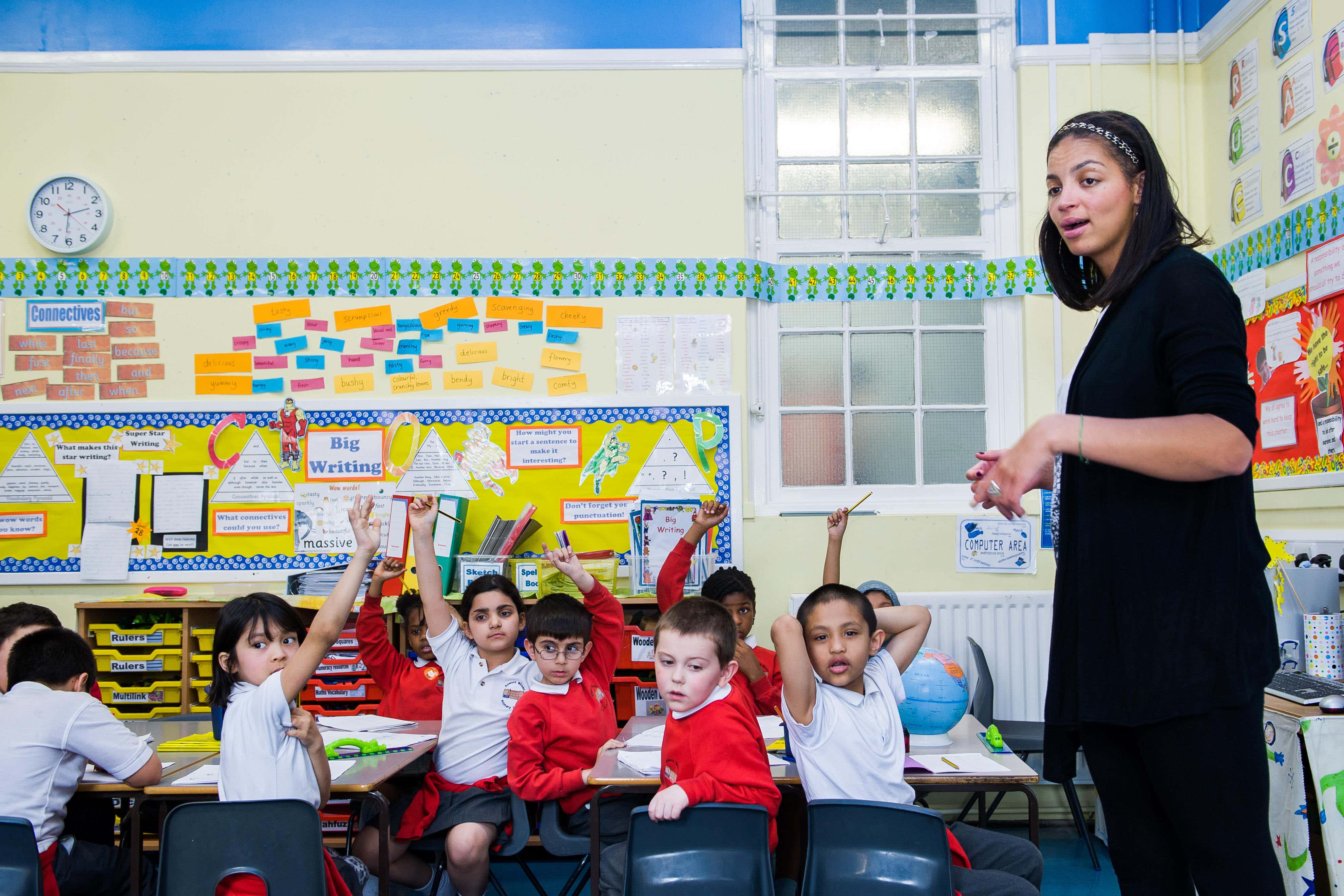How can parents and children battle back-to-school anxiety?
Being organised can be the key to reducing stress as the new academic year begins

Your support helps us to tell the story
From reproductive rights to climate change to Big Tech, The Independent is on the ground when the story is developing. Whether it's investigating the financials of Elon Musk's pro-Trump PAC or producing our latest documentary, 'The A Word', which shines a light on the American women fighting for reproductive rights, we know how important it is to parse out the facts from the messaging.
At such a critical moment in US history, we need reporters on the ground. Your donation allows us to keep sending journalists to speak to both sides of the story.
The Independent is trusted by Americans across the entire political spectrum. And unlike many other quality news outlets, we choose not to lock Americans out of our reporting and analysis with paywalls. We believe quality journalism should be available to everyone, paid for by those who can afford it.
Your support makes all the difference.With schools opening their doors again on Monday, both parents and their children could be experiencing a mixture of emotions, including anxiety.
Usually during the summer holidays, bedtime routines go out the window, diets may change and day-to-day activities are usually packed with plenty of fun activities.
So trying to recalibrate and get back to regular programming isn’t always straight forward, after six weeks away.
Here’s how parents and children can beat back-to-school anxiety…
What is anxiety?
According to the NHS website, anxiety is a feeling of stress, panic or fear that can affect your everyday life physically and psychologically.
Why do parents and children battle with back-to-school anxiety?
Jade McLellan, deputy head of pastoral at St Dunstan’s College believes anxiety is a feeling of worry or fear, that for most people, can be momentary, mild or manageable. But for others, it can be constant, overwhelming or debilitating.“Whether there have been holidays in the UK or abroad, or complicated childcare arrangements to navigate while parents continue working, the chances are that your child has had to adapt to a different regime over the holidays and the thought of early starts and late finishes at school can seem daunting.
“Schools can be overwhelming environments: noisy, bright, busy and exhausting. If your child has spent the summer in a small family unit, returning to be one of 500 or 1,500 children comes as a shock to the system,” McLellan said.“For some children, particularly neurodiverse children, any form of change can induce anxiety, so the transition into the summer holidays and the transition back to school can both cause anxiety.
“On the parent side, the intense organisation required to manage the school routine, with fitting in pick-up and drop-off around work, remembering letters, trips, non-uniform days and navigating tired children with homework deadlines can all cause parents to feel anxious.”
What signs should parents look out for when it comes to anxiety?
There are a wide number of signs of anxiety.
“Signs of anxiety can be demonstrated in a number of ways, such as complaining of a bad tummy or an illness that isn’t really there, behavioural changes or tantrums, saying no to everything, loss of appetite and lots of tears for no reason,” said parenting expert Amanda Jenner.
McLellan adds: “Some are obvious, such as biting nails, becoming quiet, or struggling to sleep or eat. However, anxious children can also lash out and become angry, withdraw socially, suffer from unexplained stomach aches or headaches, or even experience panic attacks.”
How can parents battle back-to-school anxiety?
Ryan Lockett, a former secondary school head of year and now director of studies at TLC LIVE, a tutoring company for schools, believes it all starts with practising good organisational skills.
“Walk to the school. It can ease anxiety if they remind themselves of their surroundings. Less traffic and fewer people will help them feel calmer about the journey,” he said.
“Start talking about school, in a positive way. Encouragement and positivity will help a child to feel a sense of excitement and look forward to returning.
“Discuss any fears or worries they have and try to address them before the return. It may well be as simple as needing a new pencil case because they’re worried about an equipment check on the first day back; it’s an easy one to solve,” he adds.
“Make sure any homework or summer tasks have been completed ahead of time. Don’t let this wait until the week before returning. Get it done in good time; it will help reduce anxiety related to incomplete work.”
How can children battle back-to-school anxiety?
Life coach, educator and therapist Danielle Baron thinks it’s essential for children to equip themselves with the right tools to tackle back-to-school anxiety.
“Expressing yourself creatively can be a therapeutic way to cope with anxiety,” Baron said. “Whether it’s journaling, painting, playing a musical instrument, or writing poetry, find an artistic outlet that helps you channel your emotions and thoughts in a positive way.”She adds: “It’s okay to ask for help when you’re feeling anxious. Talk to your parents, teachers, a trusted person or a school counsellor about your worries. They can offer guidance, support and resources to help you manage anxiety effectively.
“Remember that everyone goes through changes, and it’s okay to feel a mix of emotions; it’s only human. But it is our ability to bounce back quickly that counts.”
Are there any resources parents and children can use?
There are different online resources children and parents can use if they need extra support. SilverCloud offer a range of digital CBT programmes for anxious teens. These NICE-approved programmes are free and accessible.


